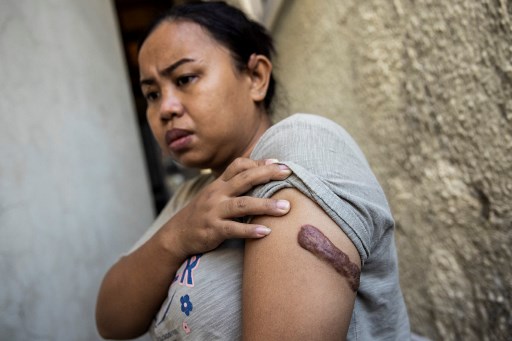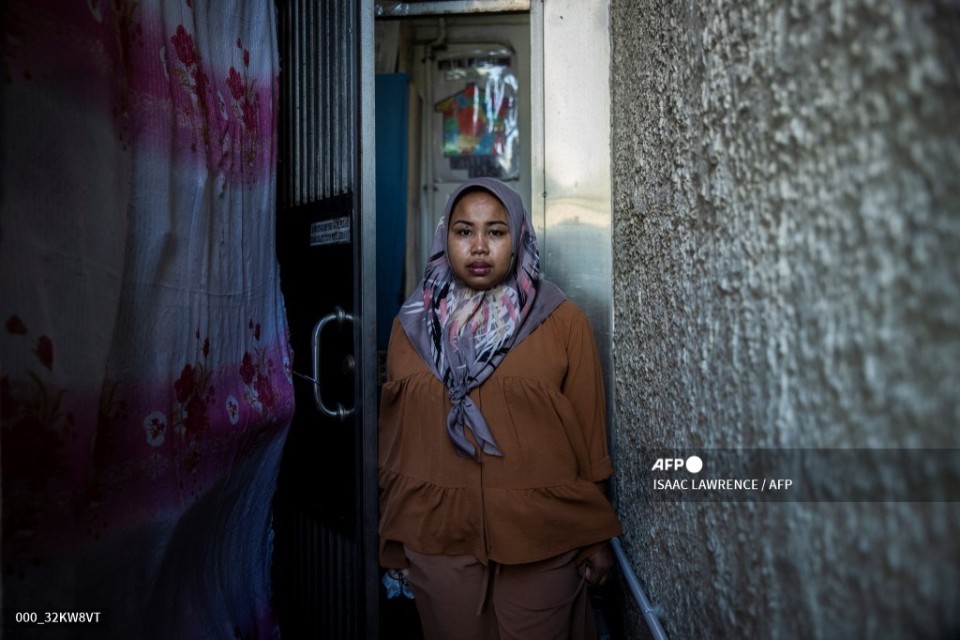
Hong Kong, China | AFP |
An Indonesian woman who suffered daily “torture” as a domestic worker in Hong Kong went to court Thursday to seek compensation from her employers over treatment that left her physically scarred and mentally traumatised.
The abuse meted out to Kartika Puspitasari, 40, made headlines a decade ago and sparked protests over the treatment of foreign helpers in Hong Kong.
Her employers, who were convicted and jailed, waged a two-year campaign of violence and humiliation against her, including burning her with an iron and beating her with a bike chain.
“I still feel a heavy trauma that makes me emotionally vulnerable, I often have nightmares and tremble whenever I see people who look like my former employers,” Kartika said via an interpreter at a press conference.
“I lost my confidence and also feel insecure because of the visible scars on my body, which are still sore and painful.”

Kartika said she returned home in 2014 without being compensated for two years’ worth of labour, as her monthly wages were never paid.
With help from activists, she returned to Hong Kong and testified in court on Thursday to sue her abusers for more than HK$930,000 ($119,000) — a rare attempt to pursue damages directly.
Hong Kong is home to around 340,000 migrant domestic workers, mainly women from Indonesia and the Philippines.
Rights advocates have long argued that they are acutely vulnerable to various forms of abuse and exploitation.
A tearful Kartika told reporters she was still afraid to speak publicly about her experience.
“At the time, I was so desperate… I had no friends, couldn’t contact anyone and was tortured every day.”
Eni Lestari, spokesperson of the Asian Migrant Coordinating Body in Hong Kong, said Kartika’s case was “extreme, but not an isolated one”.
Abused migrant workers often lack proper food and rest — a situation made worse by the pandemic which gave employers excuses to keep helpers in the house, she added.
Hong Kong’s system, which requires domestic workers to live in their employers’ households and pays a minimum monthly salary of HK$4,730, was akin to “modern slavery”, activists said.
It is common for victims not to speak out because they cannot afford to seek redress in Hong Kong, especially when their visas expire at the end of their contracts, they added.
Kartika’s ex-employers — who were jailed for three and a half years and five and a half years respectively and have completed their sentences — did not appear in court on Thursday for the civil suit.
hol/jta/ssy
© Agence France-Presse







